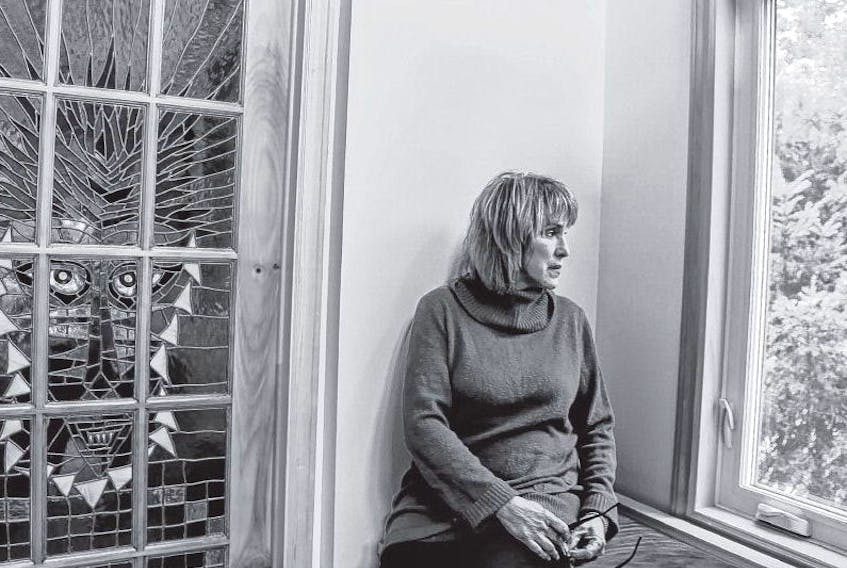Melanie Stephen is disgusted with a recent Parole Board of Canada decision extending day parole for Mykel Smith, the man who shot her son Michael Patriquen in 2008.
The decision, dated Dec. 28, states that the extension is meant to allow extra time for the board to arrange a hearing to consider the granting of full parole.
On Nov. 11, 2008, Smith and Sergio Robinson Bowers went to Patriquen’s house and Smith shot him in the chest at his front door. They then robbed him of some jewelry. Patriquen knew Bowers but Smith, who was 17 at the time, was a complete stranger. Bowers was sentenced to five years for his role in the shooting and paroled in 2013. Smith, sentenced as an adult, got 14 years.
Patriquen was left paralyzed from the waist down and with limited use of his right arm.
“Our penal system needs a complete and thorough overhaul when it comes to violent offences at the very minimum,” Stephen said on Monday. “Seriously. If somebody is sentenced to 10 years, that’s it, they (should) do it. No perks. No good behaviour. No time served. Nothing. I’ve become very hardline on this.
“It’s all about the prisoner’s rights. (But) my son has been literally sentenced to a life in a wheelchair. I know they’re now making incredible advances, but he’s been in and out of hospital since . . . to me, the attempted murder, back in 2008. He’s got the scars, he suffers from depression in and out, it’s just an abomination.”
Smith has been on day parole since January 2017. In the recent decision the parole board cited grave concerns related to past psychological assessments, his criminal history and the seriousness of the offence, but it also noted positive reports from his case management team, which is recommending full parole.
“You have been actively working on your social reintegration and have achieved many of your correctional plan objectives,” the decision states. “You have been able to reintegrate into society as a law-abiding citizen and have maintained your involvement with your CMT.”
Stephen doesn’t buy it.
“My son was a total stranger to this entity. So, if somebody would do this to a total stranger, it speaks volumes about their moral compass. And my question has always been to the parole board, how do you reinvent this wheel?”
Stephen has attended every parole board meeting for the two men involved in the shooting. She said it’s a waste of time because you are not allowed to speak freely. She’d like to be able to speak from the heart rather than from an impact statement prepared and submitted in advance. She firmly believes it doesn’t make a difference, anyway.
Going to the hearings is a big deal. With Patriquen, now 34, in a power wheelchair, they have to arrange special transportation and it takes a big toll on him.
“I’ve gone to every one but I don’t even think I’m going to bother with the next because I see it’s all politics. They just want him in and out, they don’t care about the consequences.”
Smith’s day parole is not in HRM and among the conditions upon him is that he stays away from the area. His location is redacted from the parole board decision but Stephen said sheheard he is in Montreal.
“At the parole hearing he said he had this job lined up — his aunt was opening up a restaurant in Montreal. He’d been studying French. (But) he’s not working, or at least he wasn’t two months ago, he still hadn’t had a job. I got something from them saying . . . he’s been advised to start getting active to look for employment. So we, the taxpayers, flew him to Montreal, God knows what else, for a job that didn’t exist, that was part of the reason he got day parole.”
Stephen said she would love to speak with other victims of violence, raise an outcry and lobby government.
“It’s insane. The whole system is insane.”
The situation has left Stephen and her son feeling re-victimized.
“That’s why I don’t even mention it to Michael. He doesn’t even know this yet. No. Not even going to tell him because it just sends him in a tailspin, in total depression. It’s just a nightmare that doesn’t end.”
Meanwhile, they keep soldiering on with her son’s health. They are hoping to do crowdfunding to get a device called a ReWalk, billed on its website as “a wearable exoskeleton that provides powered hip and knee motion to enable individuals with spinal cord injury to stand upright, walk, turn, and climb and descend stairs.”
The Canadian Agency for Drugs and Technologies in Health website puts the cost of a personal ReWalk at US$71,600.
“I know, now, that people are actually getting out of wheelchairs, they’ve made that much of an inroad. It’s very expensive and all of the rest of it. But I’m trying to instill some hope in him now that there are things that couldhappen.”









